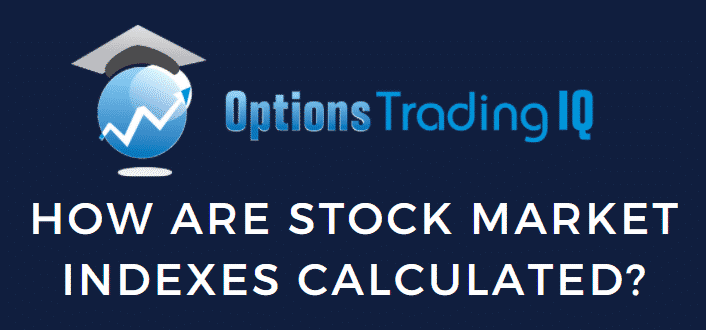

Today we’ll answer a question that most probably you wondered about: How are stock market indexes calculated?
This is an excellent question because stock market indexes are fundamental to understand.
This guide will learn about the different ways stock market indexes are calculated and why they are so vital to you as an investor.
Contents
- What Is A Stock Market Index?
- How Are Stock Market Indexes Calculated?
- Market Cap Weighted System
- Equal Weighted System
- Price Weighted System
- The Importance Of Stock Market Indexes To Investors
- Final Thoughts
Understanding the fundamentals of the stock market is extremely important for just about any type of investor.
As a result, millions of investors analyze the performance of the most popular stock market indexes every single business day.
Before we dive into the different ways that stock market indexes are calculated, it’s probably a good idea to discuss the most popular stock market indexes.
Many new investors may not be familiar with stock market indexes, so it is essential to take a quick look at some of the most popular indexes.
What Is A Stock Market Index?
A stock market index holds a collection of stocks from various sectors or industries of the market.
For example, three of the most popular stock market indexes include the Dow Jones Industrial Average, S&P 500, and NASDAQ.
The Dow Jones Industrial Average has been around for centuries and generally tracks approximately 30 stocks from the industrial sector.
It is considered the oldest stock market index still tracked and remains among the ‘big three’ stock market indexes in the United States.
The S&P 500 Index is a stock market index that comprises approximately 500 blue-chip stocks.
Therefore, you might find companies like Apple, Tesla, Facebook, and Microsoft at the top of the list when evaluating the S&P 500 Index.
The NASDAQ Index is based around companies that develop technology and other similar resources.
This stock market index tracks stocks commonly traded in the NASDAQ markets; many of them include extensive technology stocks that have been extremely bullish in recent years.
Now that you have a basic understanding of the fundamentals of a stock market index, we can shift our focus towards the methodology that goes into calculating the value of a stock market index.

How Are Stock Market Indexes Calculated?
Stock market indexes are calculated through a weighted system based on the market capitalization of a company’s stock.
This system is used to calculate the NASDAQ Index and the S&P 500 Index.
Market Cap Weighted System
This means that the companies with the largest market cap have the most significant impact on the calculation of the index.
So, for example, Apple, Microsoft, and Amazon have the most impact on the overall calculation of the S&P 500.
In contrast, a company like Under Armour would have minimal impact on the S&P 500 index.
There are several benefits to this type of weighted market cap system for a stock market index.
The largest benefit is that there is generally much less volatility in the stock market index when using this weighted system that places much more weight on the large-cap companies.
Equal Weighted System
Some stock market indexes are calculated through an equal-weighted system.
This means that every stock in the index is weighted equally instead of preference towards large-cap companies.
Price Weighted System
In addition to these two stock market index formulas, a price-weighted formula is currently used to calculate the Dow Jones Industrial Average.
This means that companies with higher stock prices will carry more weight, while stocks with lower prices will have much less impact on the overall calculation.
There are certainly pros and cons to each type of formula to calculate a stock market index value.
For example, many investors prefer the market capitalization-weighted system because it’s easier to understand, while the price-weighted system typically favors companies that inherit larger stock prices.
Click Here For Our Top 7 Technical Indicators
The Importance Of Stock Market Indexes To Investors
There may not be a more critical calculation available to investors than the stock market index calculations every day.
Regardless of which weighted system is used for that particular index, the stock market indexes provide a general perspective of the stock market’s overall performance.
There’s a pretty good chance if the numbers are in the green on a stock market index that the stock market had a pretty good day in that particular sector.
The same thing can be said if a stock market index is negative.
So it’s pretty safe to assume that most stocks had a bearish performance in the stock market on that particular day.
Stock market index calculations are critical if you plan on investing in popular index funds.
This is a much safer approach for investors that are trying to avoid risky investments in individual stocks.
By investing in an index fund, investors can reduce their investment risks and improve the chances of growing their money in the long term.
This is only one of the reasons that the weighted systems to calculate stock market indexes are so significant.
Final Thoughts
Novice investors must understand the various methods that are used to calculate the prominent stock market indexes.
By understanding these weighted systems, you’ll have a better idea of how specific sectors or industries might perform.
You can also determine which stock market index you’d like to invest in.
For example, you can decide if you want to invest in a stock market index that uses the market-cap-weighted system, such as the S&P 500.
If you’re not a fan of that, you could instead decide to invest in the Dow Jones Industrial Average, which uses a weighted price system for its stock market index calculation.
Stock market indexes are fascinating because they instantly provide investors with tons of information about the performance of the market.
As a result, they are a significant part of the economic system and substantially impact decision-making on Wall Street.
Trade safe!
Disclaimer: The information above is for educational purposes only and should not be treated as investment advice. The strategy presented would not be suitable for investors who are not familiar with exchange traded options. Any readers interested in this strategy should do their own research and seek advice from a licensed financial adviser.










